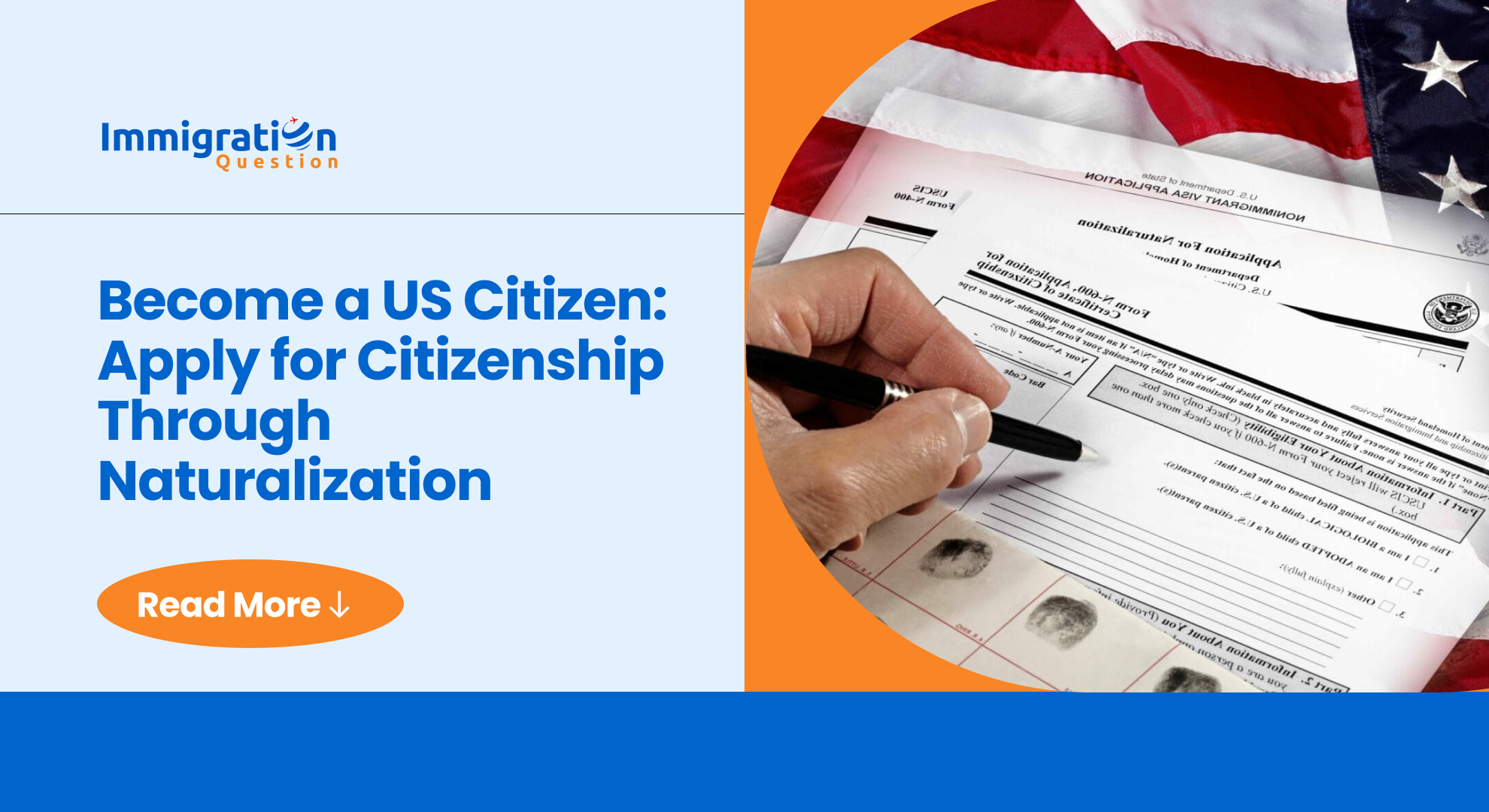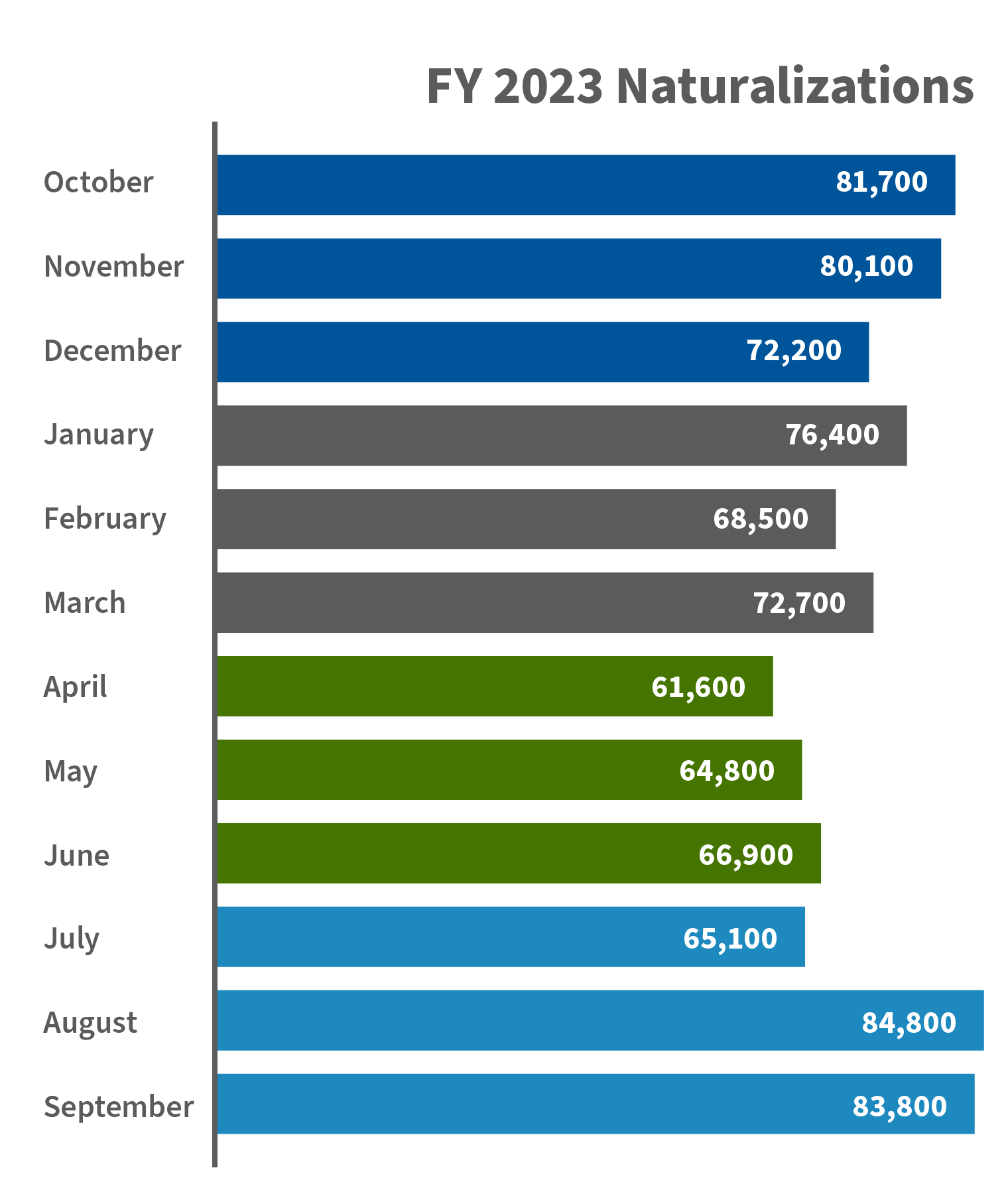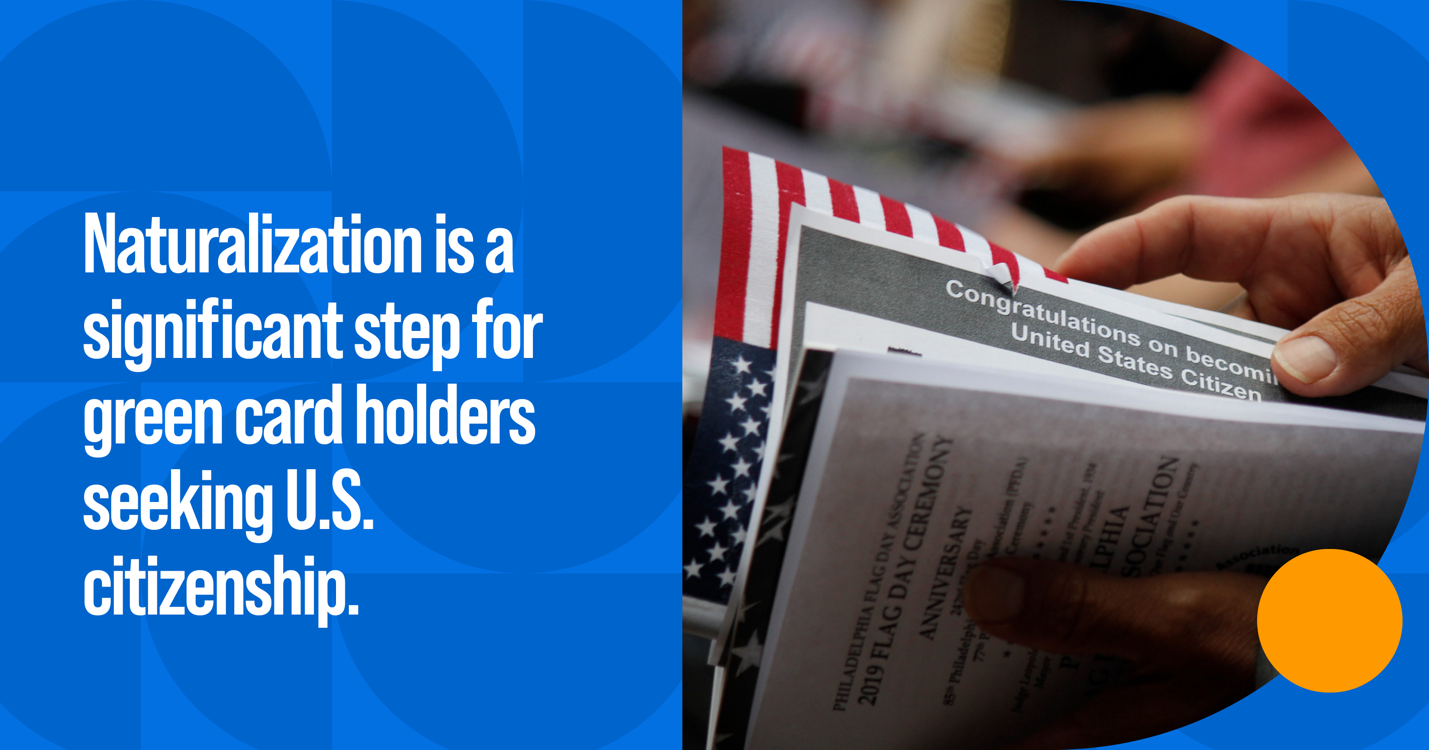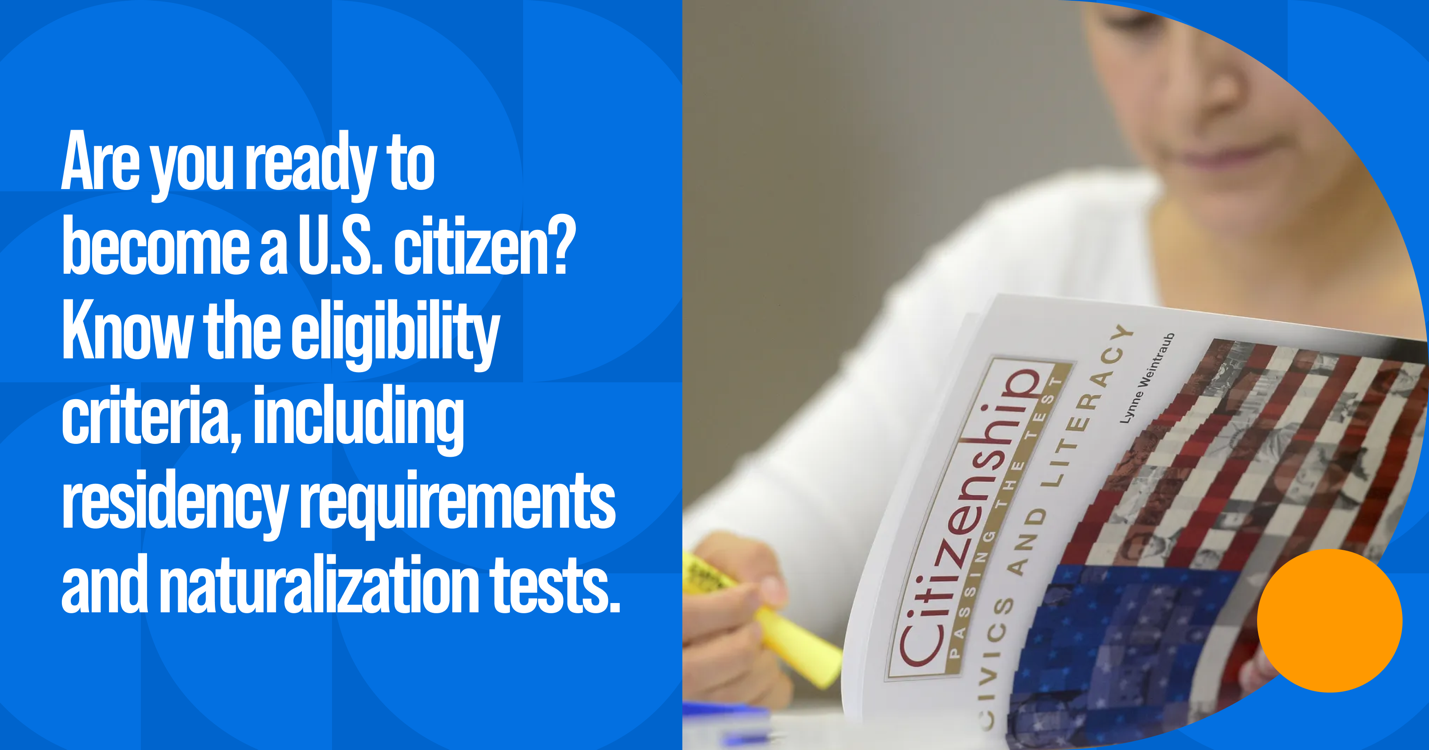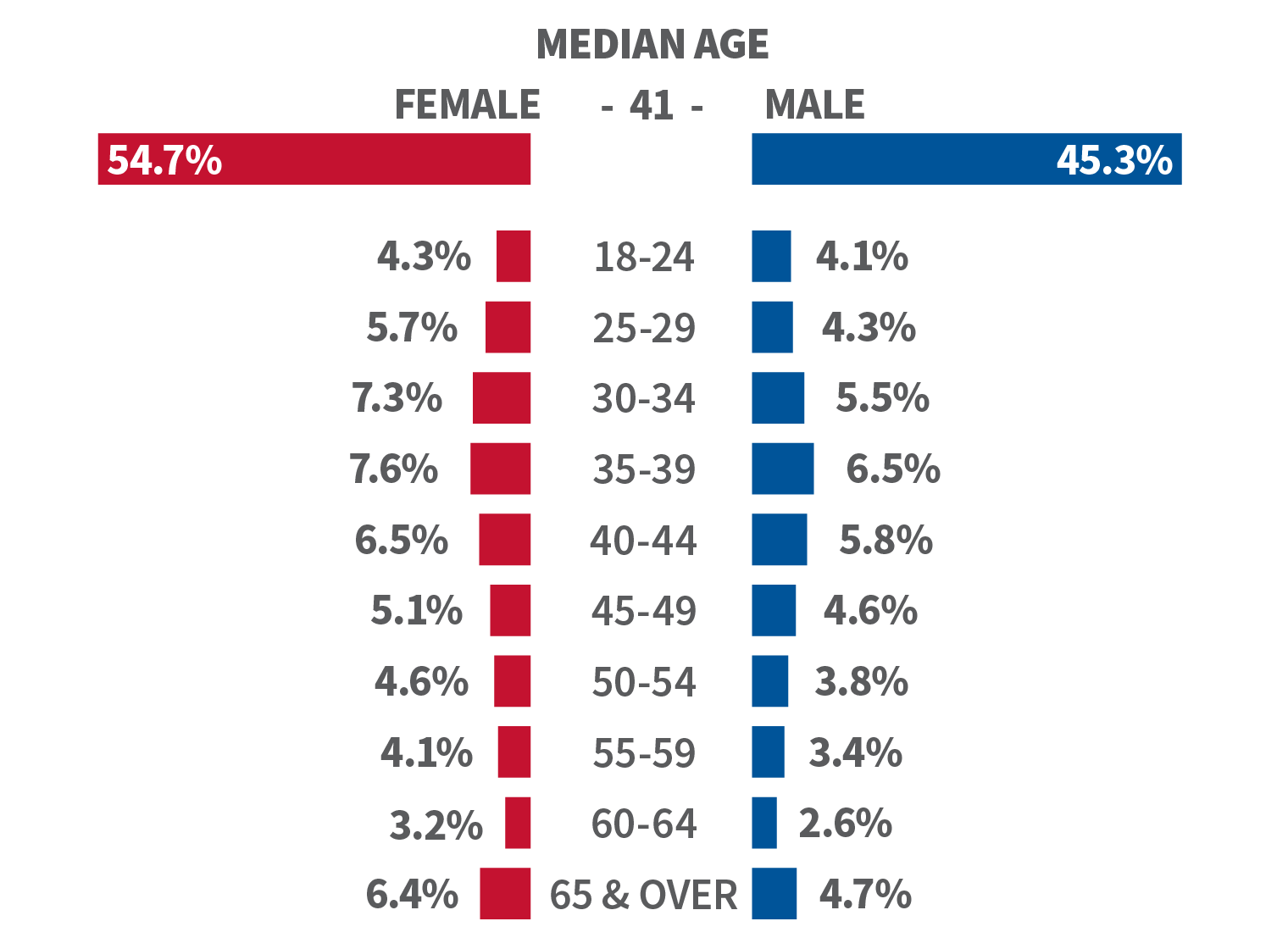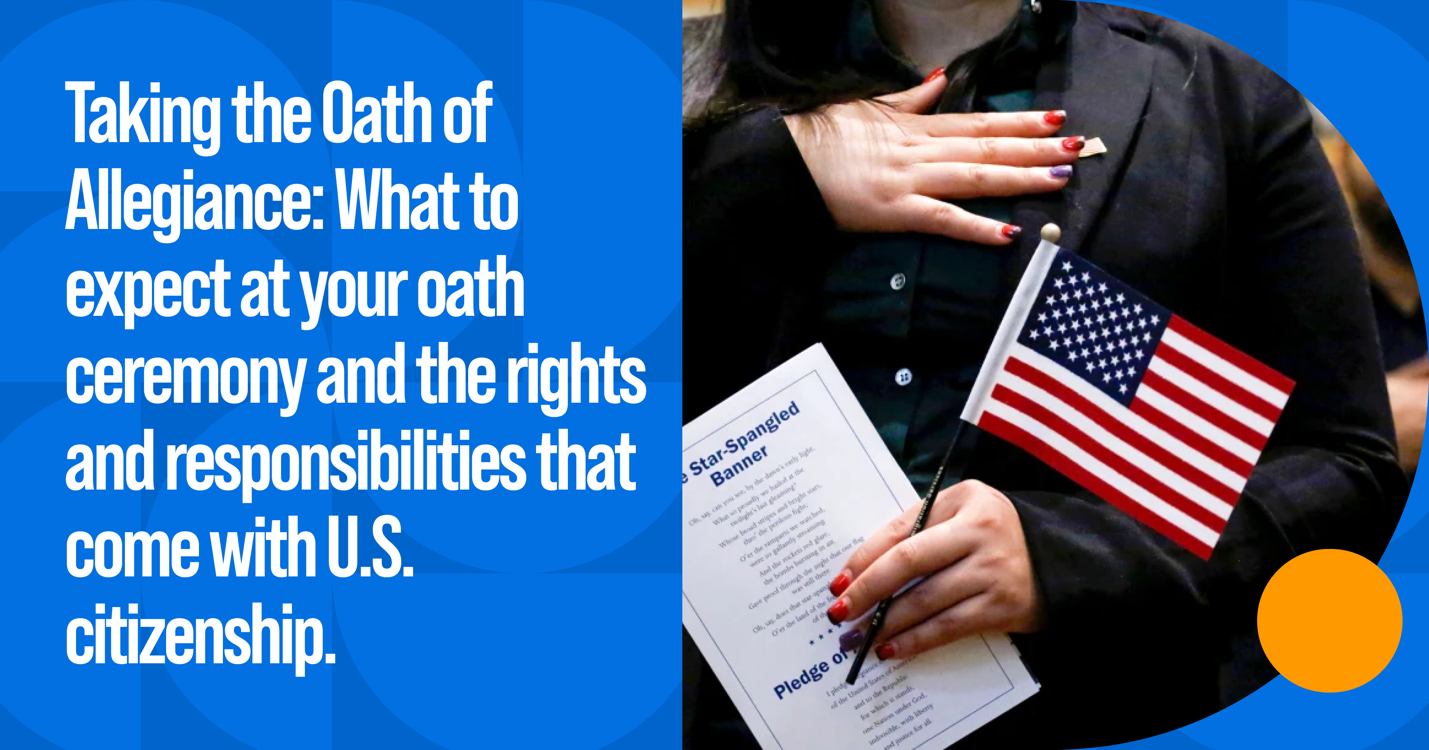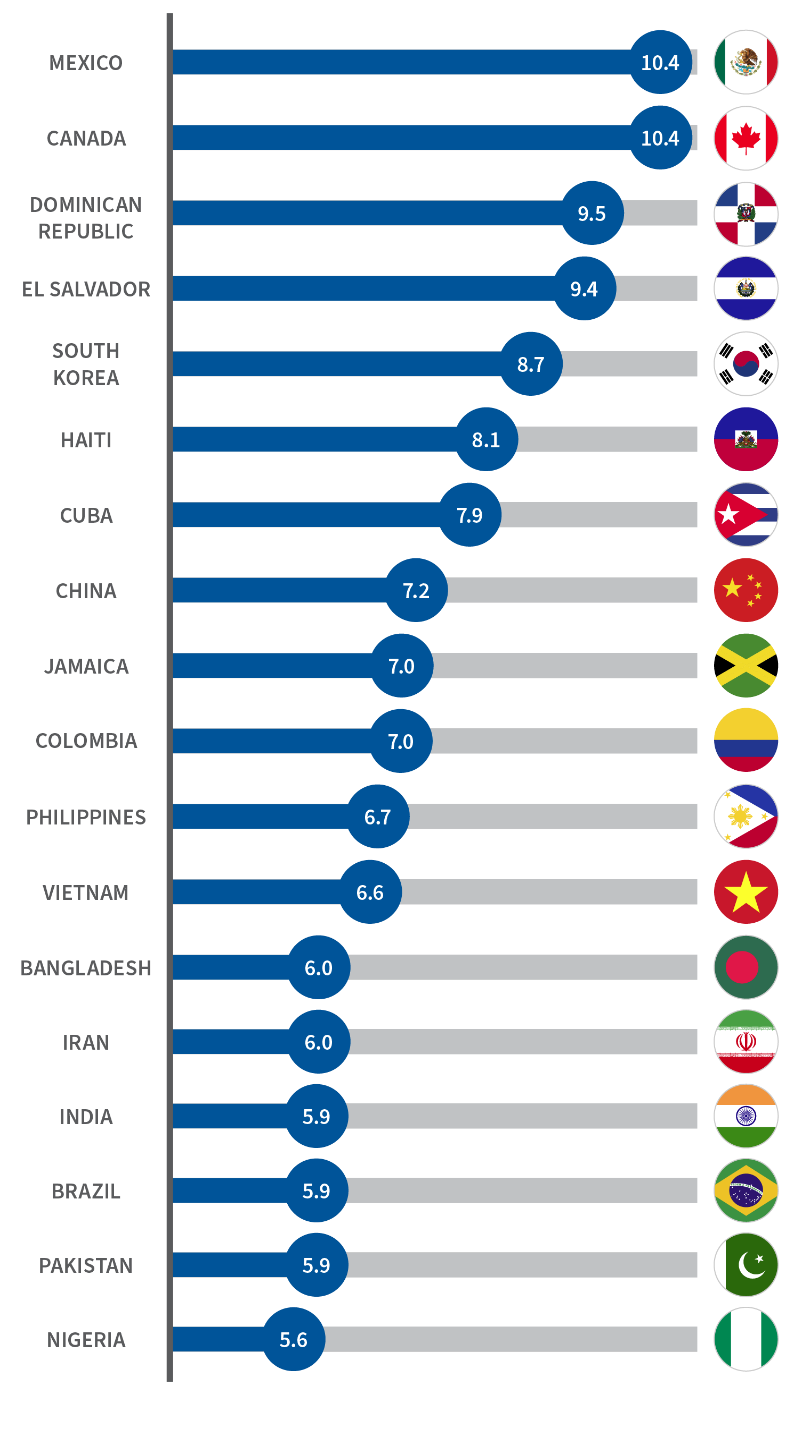Becoming a U.S. citizen is a significant milestone for many immigrants in the United States. While some are born into citizenship, others achieve it through naturalization, which allows permanent residents to become U.S. citizens. If you are a green card holder wondering, “When can I apply for citizenship after green card?” This guide will provide you with all the necessary information.
Source: USCIS.gov
Requirements for Apply for Citizenship Through Naturalization
Before applying for U.S. citizenship, you must satisfy several U.S. citizenship requirements. These include:
- Age Requirement: You must be at least 18 years old.
- Language Proficiency: Ability to read, write, and speak basic English, with some exceptions based on age and time spent in the United States.
- Good Moral Character: You must have demonstrated adherence to the moral standards of your community.
- Residency and Physical Presence: If you are wondering when a green cardholder can apply for citizenship, they must have lived continuously in the U.S. for three or five years, depending on your category, and not taken trips outside the U.S. lasting six months or more.
- State Residency: You must have resided in the state or district where you apply for at least three months.
- Naturalization Test: Unless exempted, you must pass a two-part test covering English language skills, U.S. history, and government.
- Military and Civil Service Commitment: Willingness to serve the U.S. and males between 18-25 must register with the Selective Service System.
- Constitutional Allegiance: Willingness to uphold and defend the U.S. Constitution.
The answer for those wondering when a green card holder can apply for citizenship varies based on individual circumstances. Typically, permanent residents must wait five years, but this period reduces to three years for those married to U.S. citizens. Additionally, active military members may be eligible sooner under different guidelines.
Understanding these requirements is essential for green card holders who ask, “When can I apply for citizenship after green card?” Meeting all these criteria ensures your eligibility for naturalization.
Application Process for Apply for Citizenship Through Naturalization
Becoming a U.S. citizen is rewarding and opens new opportunities and responsibilities. Begin your journey today and take the first step toward realizing your dream of U.S. citizenship.
Once eligible, the first step in applying for citizenship is to complete and submit Form N-400: Application for Naturalization. If you are wondering how to apply for U.S. citizenship from green card, here is a step-by-step overview:
- Create an Online Account: File Form N-400 online to track your case status, send secure messages, and update your personal information.
- Gather Required Documents: Collect documents demonstrating your eligibility, including green card, passport-style photos, and any necessary supporting evidence.
- Review and Submit Your Application: Carefully review your application and supporting documents. Submit them with the necessary fees to the U.S. Citizenship and Immigration Services (USCIS).
Provide full information to ensure your application is completed on time, so be meticulous when completing and reviewing your Form N-400.
Biometrics Appointment
After submitting your application, USCIS may schedule a biometrics appointment. You will receive a notice with the appointment’s date, time, and location, where you will submit your fingerprints and take photographs for background checks.
USCIS uses this information to verify your identity and ensure there are no criminal records that would disqualify you from naturalization. If new biometrics are required, you must attend the appointment as scheduled.
Naturalization Interview
The final step in the process is the naturalization interview. During this interview, a USCIS officer will review your Form N-400 and ask questions about your background. You will also take the English and civics tests unless exempt.
- Medical Exceptions: If you have a medical condition that prevents you from meeting the English and civics testing requirements, submit Form N-648: Medical Certification for Disability Exceptions.
- Test Results: If you fail any part of the test, you will get another opportunity to retake the failed portion within 60 to 90 days.
- Missed Interview: Missing your interview can significantly delay the naturalization process, so be sure to attend as scheduled or reschedule promptly if necessary.
- Failed Test: If you fail either the English or civics portion of the test, USCIS will only retest you on the section you did not pass. However, if you fail the same part of the test again, USCIS may deny your application.
- Second Interview: In certain situations, the USCIS officer may not decide on your Form N-400 on the day of your naturalization interview. When this occurs, the officer will continue processing your case, which may involve requesting additional documentation or scheduling a second interview.
The median age of those naturalizing in FY 2023 was 41, and women comprised nearly 55%.
Source: USCIS,gov
Apply for Citizenship Through Naturalization Fees and Costs
As of April 2024, the government filing fee for Form N-400 is $760 for paper and $710 if filed online. This fee covers processing your application, conducting a background check, and administering the naturalization test. However, this amount does not include other potential expenses you may incur throughout the naturalization process.
When planning for your citizenship journey, consider these additional costs to ensure you are financially prepared.
Additional Costs to Consider:
1. Assistance Fees
If you seek help from an immigration attorney or a specialized service, there will be additional fees for their expertise. While this assistance is optional, many applicants find it helpful to avoid common mistakes that could delay their application. Legal fees for naturalization assistance can vary significantly, ranging from several hundred to thousands of dollars.
2.Translation Services
All documents submitted to USCIS must be in English. You must provide certified translations if any required documents are in a foreign language. Professional translation services charge based on the length of the document. The costs can add up if you have multiple documents to translate.
3.Photocopying and Mailing Costs
You must provide copies of your documents along with the original Form N-400. These can include your Green Card, passport pages, and other supporting evidence. Photocopying costs can accumulate, especially if you have multiple documents. Additionally, mailing your application and supporting documents to USCIS can be costly.
4.English and Civics Test Preparation
Although not a direct application cost, preparing for the English and civics tests often involves expenses. Many applicants invest in study materials or private tutoring to increase their chances of passing. While free resources are available, paid classes can offer personalized guidance, which may be more effective for some individuals.
5.Reapplication Costs
If your initial Form N-400 is denied and you decide to reapply, you must pay the filing fee again. Understanding the reasons for your initial denial and addressing them thoroughly in your reapplication is crucial to avoid repeating the same mistakes.
6.Lost Income or Time Off Work
Depending on your job and financial situation, attending your biometrics appointment, interview, and Oath of Allegiance ceremony may require taking time off work. While not a direct cost, lost income can impact your financial planning, especially if you do not get paid time off for these appointments.
7.Travel Expenses
You may need to travel to a USCIS office for your biometrics appointment, interview, and Oath of Allegiance ceremony. If the closest office is far from your residence, you should budget for travel costs and accommodation if an overnight stay is necessary.
Notice of Decision
After you have completed your naturalization interview, you will receive a written decision from USCIS regarding your Form N-400: Application for Naturalization. There are only two possible outcomes for your application:
- Granted: USCIS will approve your Form N-400 if the evidence on record demonstrates that you meet all the requirements for naturalization. In this case, you will proceed to take the Oath of Allegiance.
- Denied: If the evidence on record shows that you need to meet the eligibility criteria, USCIS will deny your Form N-400. The denial notice will include the specific reasons for this decision.
Application Denied
If your Form N-400 is denied, you will receive a notice from USCIS detailing the reasons for the denial. If you believe the denial was incorrect, you can appeal this decision by filing Form N-336: Request for a Hearing on a Decision in Naturalization Proceedings. This form must be submitted, along with the required fee, within 30 days of the denial notice date. It is crucial to file within this timeframe, as failure to do so will result in the denial decision becoming final, and you will not be able to contest it further.
Taking the Oath of Allegiance
The final step in the naturalization process is taking the Oath of Allegiance. USCIS will notify you of your scheduled oath ceremony’s date, time, and location. In some cases, you may be able to participate in the oath ceremony on the same day as your interview. Suppose you are unable to attend the ceremony as scheduled. In that case, following the instructions on the N-445: Notice of Naturalization Oath Ceremony is vital to inform USCIS and request a new date.
You will be a U.S. citizen once you have taken the Oath of Allegiance during a naturalization ceremony, which may be conducted by USCIS or by a judge in a judicial ceremony. After taking the oath, you will receive your Certificate of Naturalization as proof of your U.S. citizenship.
Steps to Complete the Oath Ceremony:
- Complete Form N-445: Fill out the questionnaire on the Notice of Naturalization Oath Ceremony form before arriving at the ceremony.
- Report to the Ceremony: Arrive at the designated location on the date and time specified in your notice.
- Check-in with USCIS: Upon arrival, a USCIS officer will review your responses to Form N-445.
- Turn in Your Permanent Resident Card: Surrender your Green Card to the officer before taking the oath.
- Take the Oath of Allegiance: You will then take the Oath of Allegiance, officially becoming a U.S. citizen.
- Receive Your Certificate of Naturalization: You will receive your Certificate of Naturalization after the ceremony. Please review it carefully to ensure all information is correct and notify USCIS of any errors before leaving the ceremony site.
Mexico, Canada, and the Dominican Republic had the highest number of new citizens in FY 2023.
Source: USCIS.gov
Benefits of Apply for Citizenship Through Naturalization
Becoming a U.S. citizen comes with numerous rights and responsibilities that support the nation’s democratic values. As a citizen, you gain access to benefits such as:
Rights:
- The freedom to express yourself and practice your religion.
- The right to a fair trial by jury and the ability to vote in elections for public officials.
- The opportunity to apply for federal employment that requires U.S. citizenship.
- The eligibility to run for elected office.
Responsibilities:
- Supporting and defending the U.S. Constitution and staying informed about community issues.
- Participating in the democratic process and respecting the rights, beliefs, and opinions of others.
- If called upon, comply with all laws and fulfill civic duties, such as paying taxes and serving on a jury.
- Being prepared to serve the country as needed.
Frequently Asked Questions About When a Green Card Holder Can Apply for Citizenship Through Naturalization
1. Can a green card holder apply for citizenship before 5 years?
Yes. While green card holders typically need to wait five years to apply for U.S. citizenship, those married to a U.S. citizen can apply after three years, provided they meet all other eligibility criteria. A simple answer to the question: “When can I apply for citizenship after green card?” is that it is between three to five years.
2. Is naturalization the same as citizenship?
Naturalization is the process through which a non-citizen becomes a U.S. citizen. Citizenship is the status obtained through naturalization or by birth. While naturalization is a pathway to citizenship, they are not identical concepts. Naturalization involves meeting specific legal requirements, including residency, language proficiency, and passing a citizenship test.
3. How long does it take to get citizenship in the U.S.?
The entire process can take 15 to 24 months, from submitting your application to taking the Oath of Allegiance.
4. How much does it cost to apply for citizenship?
The filing fee for Form N-400 is $760, although military applicants are exempt from this fee. If you file online, you may be eligible for a $50 discount.
Conclusion
By following the outlined steps – completing Form N-400, attending biometrics, and preparing for the interview, you can successfully Apply for Citizenship Through Naturalization and become a U.S. citizen. For more detailed information, visit the USCIS website and review the instructions.
About Immigration Question
Immigration Question is a revolutionary platform that connects immigration attorneys to people who have immigration-related enquiries. We provide guidance on U.S. visas, citizenship, and green cards, keep you informed with the latest immigration news, and foster a knowledgeable community for support and insights.

